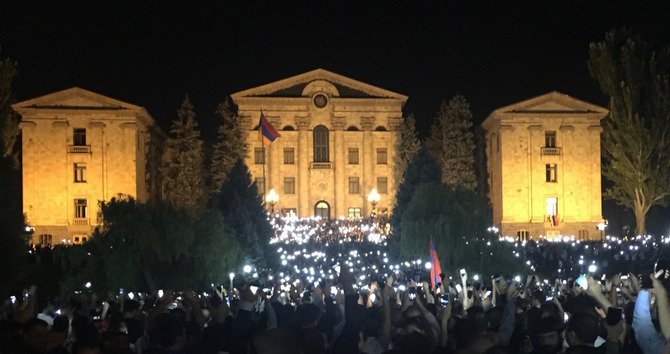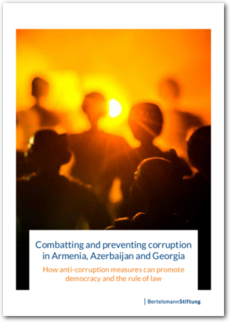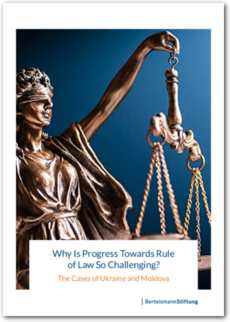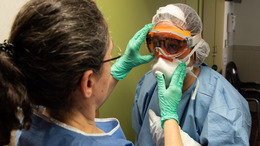The successes achieved by Georgia, the region’s “anti-corruption champion,” have only been partially sustainable. Against the background of considerable material and financial support provided by the EU, the results of a survey conducted by the Caucasus Research Resource Center are cause for concern: Only 1 percent of all Georgians view the EU as a “friend.” A survey carried out by the project EU NEIGHBOURS east gives a completely different impression, however: Two-thirds of all Georgians feel that relations between the EU and Georgia are good, and a clear majority say they trust the EU.
The political opening and social engagement in Armenia are impressive. Against this background, it is difficult to understand why Germany’s government would want to phase out its bilateral cooperation with the country – at a time when the door to reform and modernization is open.
In Azerbaijan, the decline in petty corruption has been striking. However, according to the author of the country reports, this does not mean that the state is giving the public more opportunities to participate, but is trying to hold on to power instead. Similarly, on a global level, it remains to be seen whether Baku is merely attempting to increase its international recognition or is becoming a true adherent of multilateralism.
Crises of epic proportions, such as those triggered by the corona pandemic, put a spotlight on existing shortcomings. Yet crises also offer the opportunity to act on policy initiatives and transform dysfunctional structures. They are therefore one more reason why we should focus on promoting good governance, the rule of law and anti-corruption measures in the European neighborhood.
![[Translate to English:] Autofenster, an dem ein Wahlkampfplakat von Nikol Paschinjan klebt](/fileadmin/files/_processed_/3/4/csm_1612171350Nikol_Pashinyan_poster_on_car_76c311aee9.jpg)






![[Translate to English:] Shadows of demonstrating people projected on a wall, on the left side the Moldovan flag](/fileadmin/files/_processed_/d/f/csm_1875029397AdobeStock_232204648_102168061_Montage_KONZERN_ST-EZ_bearb_56e266f956.jpg)


